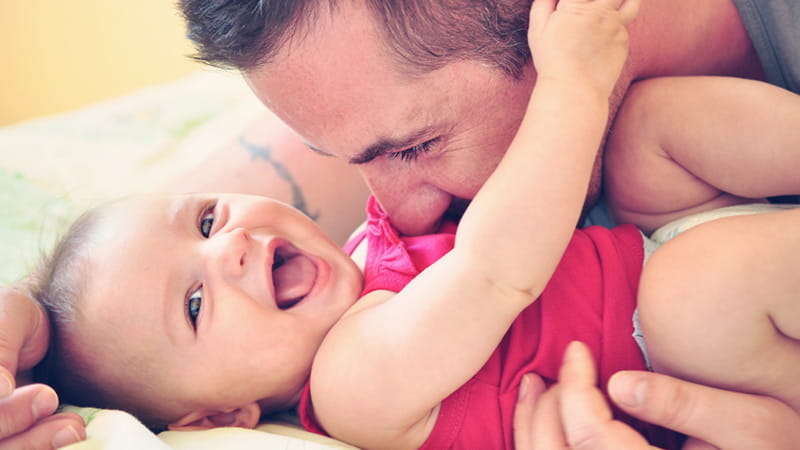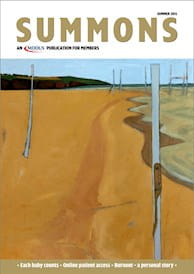
EACH year in the UK between 500-800 babies die or suffer severe brain injury during birth. Many of these tragedies occur not because the babies are born too soon or too small, or because they have a congenital abnormality. It is when something goes wrong during labour.
Recently the Royal College of Obstetrics and Gynaecology (RCOG) launched a project – Each Baby Counts – that hopes to see a 50 per cent reduction in the number of babies who die or are left severely disabled as a result of adverse incidents occurring during term labour. The RCOG is proposing to provide a central repository of serious untoward incident (SUI) reports on all stillbirths at term and other serious obstetric incidents. These will be analysed and the lessons learned extracted.
A network of local reporters will be set up in hospitals – modelled on the structure of the National Confidential Enquiry into Patient Outcome and Death (NCEPOD) – to collect the reports and provide a two-way chain of communication to drive improvement. Each Baby Counts will have a two-pronged approach: it will seek out evidence-based interventions via a systematic review of the literature and provide a central analysis of SUI reports to look for common themes, feeding these back to trusts.
A simple approach
Like all really good ideas, Each Baby Counts is both simple and ambitious. It is simple because the reports are comparatively short, can be easily collected and the organisation necessary to provide central peer review need not be complicated. It is ambitious because these reports collect and review serious clinical mishaps – cases where there is enormous opportunity for learning from experience. There needs to be change because SUI reports are at the moment very patchy in quality, if indeed they are completed at all.
SUI reviews should take place promptly, when memories are fresh and the enthusiasm to learn from an incident is at its highest. They need cost very little because they are all done in-house, capitalising on a shared determination to learn from experience. Management should try to ensure that there is an atmosphere of minimal blame.
No other review provides feedback that is either local or prompt. The confidential enquiry reports from MBRRACE (Mothers and Babies: Reducing Risk through Audits and Confidential Enquiries across the UK) and NCEPOD come long after the event and the lessons are generic, in the sense that they are nationwide. They are admirable for giving advice to the profession about how to deliver obstetrics more safely, but a long way from being tailor-made to each hospital’s problems. By the time the reports are received, the staff involved have often moved on. The same is true of litigation. Characteristically, the NHSLA does not receive claims arising from events within a year or two.
Many of the cases I see do not get an SUI investigation when they clearly should. If the only result of Each Baby Counts is to emphasise that SUIs are necessary and to create a cadre of local reporters who will advocate for that proposition in each hospital, it will be useful.
Questions of quality
The NHS Ombudsman has recently reported that SUI reports are extraordinarily inconsistent. Some are high-quality learning exercises, but others fail to highlight what appear to be fundamental learning points and errors. Others are so excessively self-critical that it seems the authors have apparently lost the capacity to be fair to themselves and each other.
A third group we review in litigation also seem to be so factually flawed that we wonder if the authors ever read the clinical notes properly. Reports need to be done professionally and at the moment it is nobody’s day-job. There is no real training available. There is not enough clarity about who should do them, what materials should be assembled and what preparation the witnesses should have.
A central audit could be valuable in raising the quality of the reports. People who write them need training and guidance and Each Baby Counts will bring this to national and local attention. Constructive criticism of each report from properly informed peer review should be helpful.
The action plans that arise from SUIs are also often lost and poorly followed up. There are shared themes running throughout these reports that can be better identified in a centralised review. Even if the willingness to learn will be maximal in the hospital where an incident has happened, there is nevertheless a national willingness to learn from mistakes that have happened elsewhere.
A modest start
At present the proposal does not involve the College receiving the clinical notes or any documentation from the Trust other than the SUI report itself. We do not know how the process will develop: experience may reveal that it is difficult for reviewers to recognise the report that is wrong in its identification of the factual matrix and that this inhibits the quality of the review. We may call for reports from the lead clinicians and a copy of the clinical notes, like NCEPOD. It may be so successful that we can justify the resources needed for such a change. Or in a few years we may recognise that the advantages of economy and speed outweigh the value of assembling the base data. It is a good idea to start modestly and see how things develop.
The fact that Each Baby Counts is to be the work of the profession is enormously attractive. Advice from senior obstetricians and midwives, people who have been there themselves and are concerned only to help the clinicians to do better in the future, is much more acceptable and likely to be much more constructive than advice from an external bureaucracy. It will also be much cheaper and more direct.
Above all, this is an example of the profession seizing the initiative in seeking to raise the quality of clinical care that is delivered in hospitals. We know that this combination of professional altruism and authority is one of the great resources of the NHS and we should congratulate the RCOG on finding a way to harness it in pursuit of an objective that is both simple and worthwhile.
Mr Bertie Leigh (Hon FRCPCH, FRCOG ad eundum) is Consultant at Hempsons Solicitors and Chair of NCEPOD. He has been a legal advisor to the RCOG for 30 years and is a member of the independent advisory group to Each Baby Counts
This page was correct at the time of publication. Any guidance is intended as general guidance for members only. If you are a member and need specific advice relating to your own circumstances, please contact one of our advisers.
Read more from this issue of Insight

Save this article
Save this article to a list of favourite articles which members can access in their account.
Save to library

